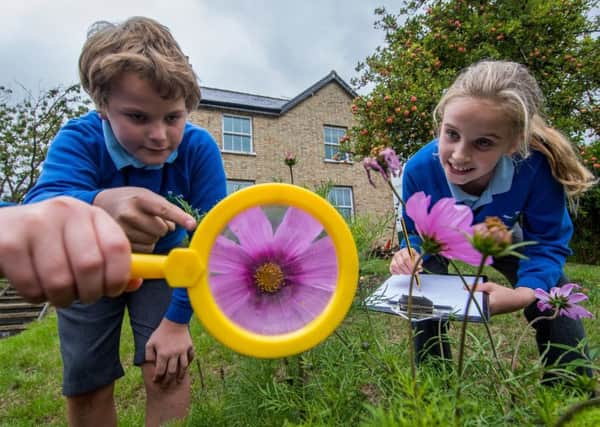Small York primary hive of activity for insect life


Bishop Wilton Primary School, with just 40 pupils on the roll, has roped in support from parents and teachers to create its pollinator gardens.
Next, the school is looking to create a wildflower meadow.
“The children thoroughly enjoy it, they love getting outside,” said teacher Jean Louden, who has helped to coordinate the project. “They’ve been involved in all stages, from the building to the planting.
Advertisement
Hide AdAdvertisement
Hide Ad“We’ve had volunteers in to help from a local gardening club, and parents have come in to paint our shed to look like a bee.
“Looking after bees, and other pollinators, is so important. We have to be educating the next generation. This is a good age to start, they are never too young to get involved.”
The school has planted fruit trees, perennial bids and is in the process of preparing for a meadow area.
The scheme is part of a project by education charity Learning through Landscapes, which has just been named Best Environment Project in the National Lottery Good Causes awards. Primary school pupils at Bishop Wilton, part of a federation with Beswick Watton and Middleton schools, have been encouraged to protect all pollinating insects.
Advertisement
Hide AdAdvertisement
Hide AdThere is a hope to increase the number and diversity of species present in the area surrounding Pocklington.
“The project aims to create a corridor for bees so they can always access pollinator plants, we’re just a small part of that,” added Mrs Louden.
The school is also participating in a national survey from OPAL Imperial College in London, observing and recording species to compare results once the project is completed.
The school’s findings will help scientists develop an accurate understanding of the current state of the habitats for Britain’s pollinating insects.